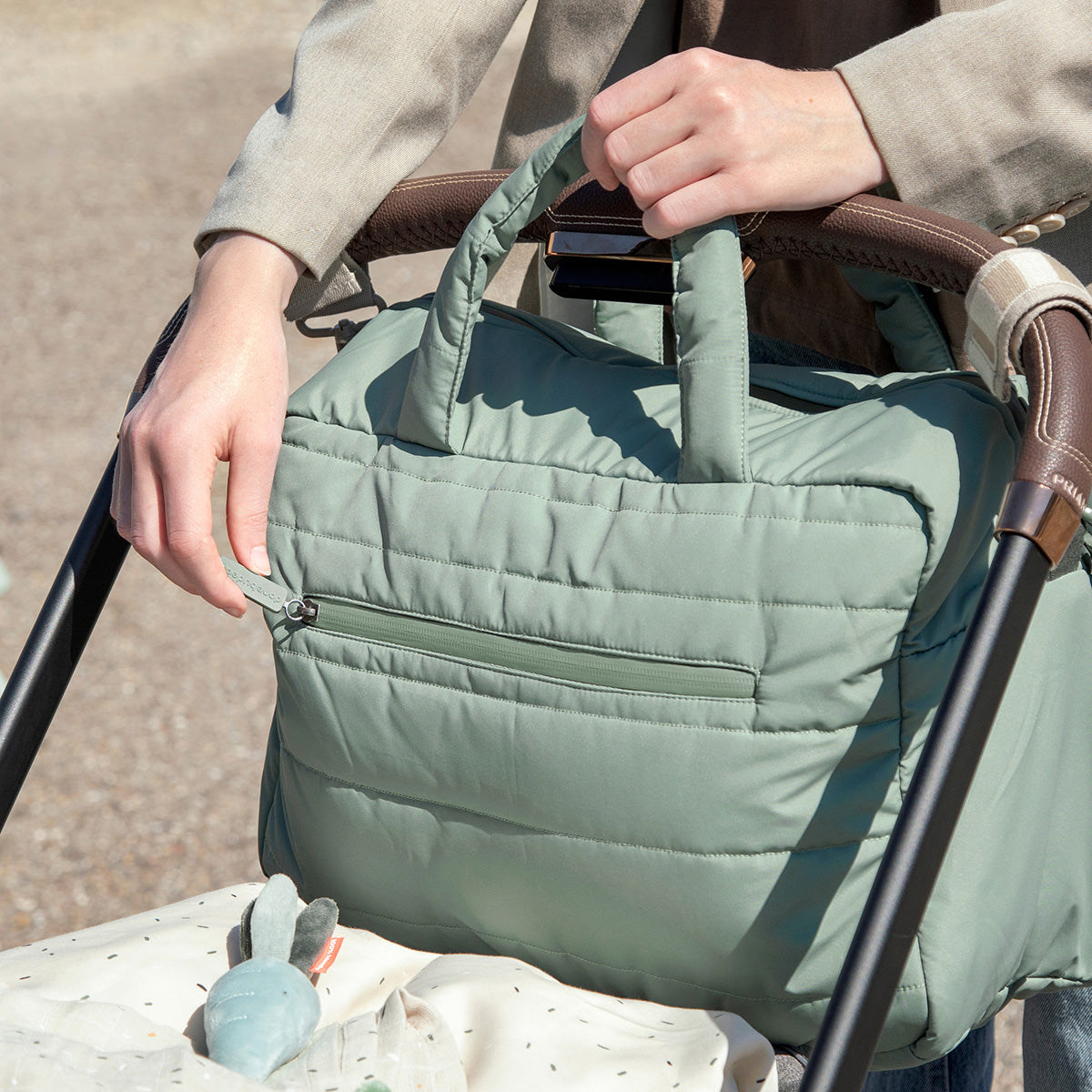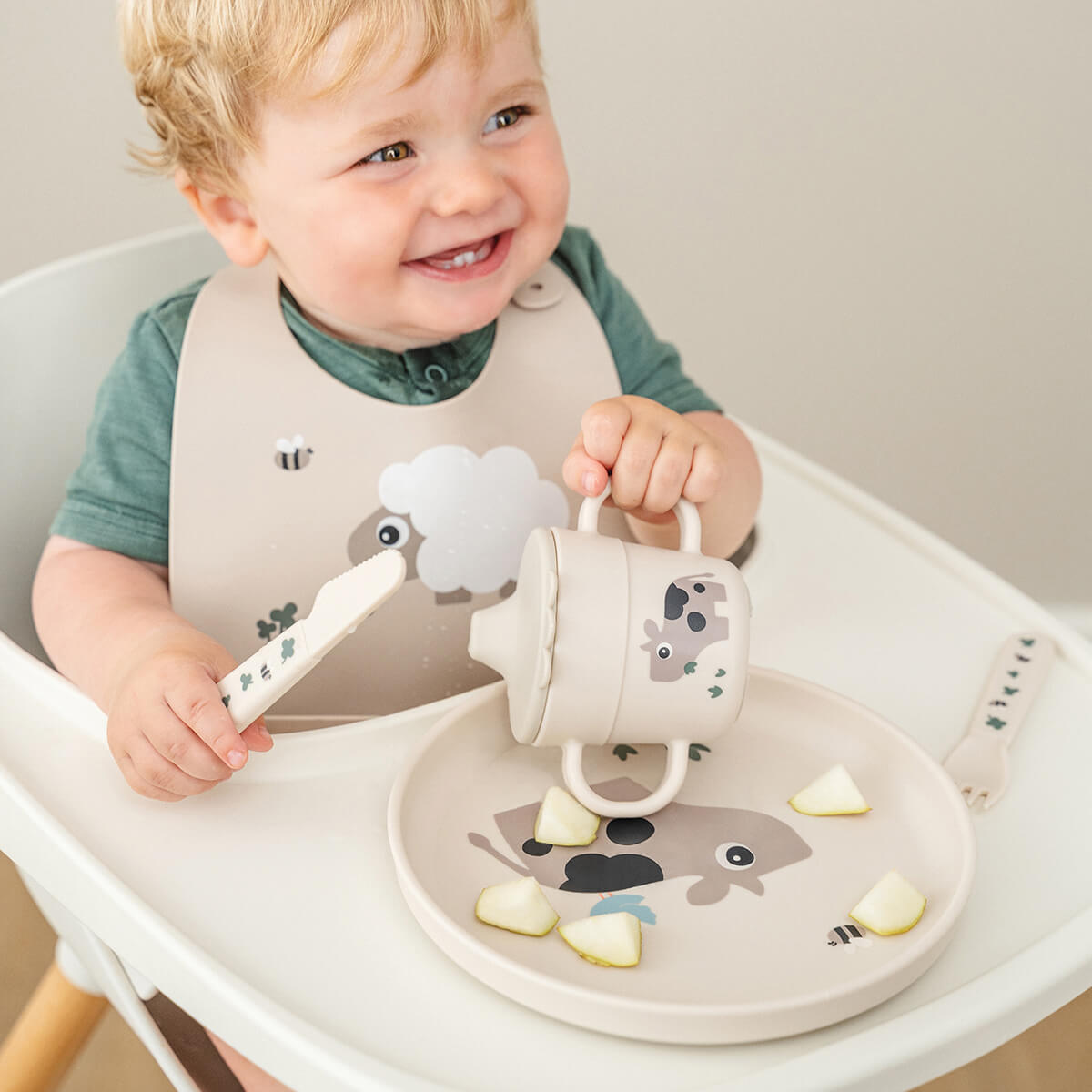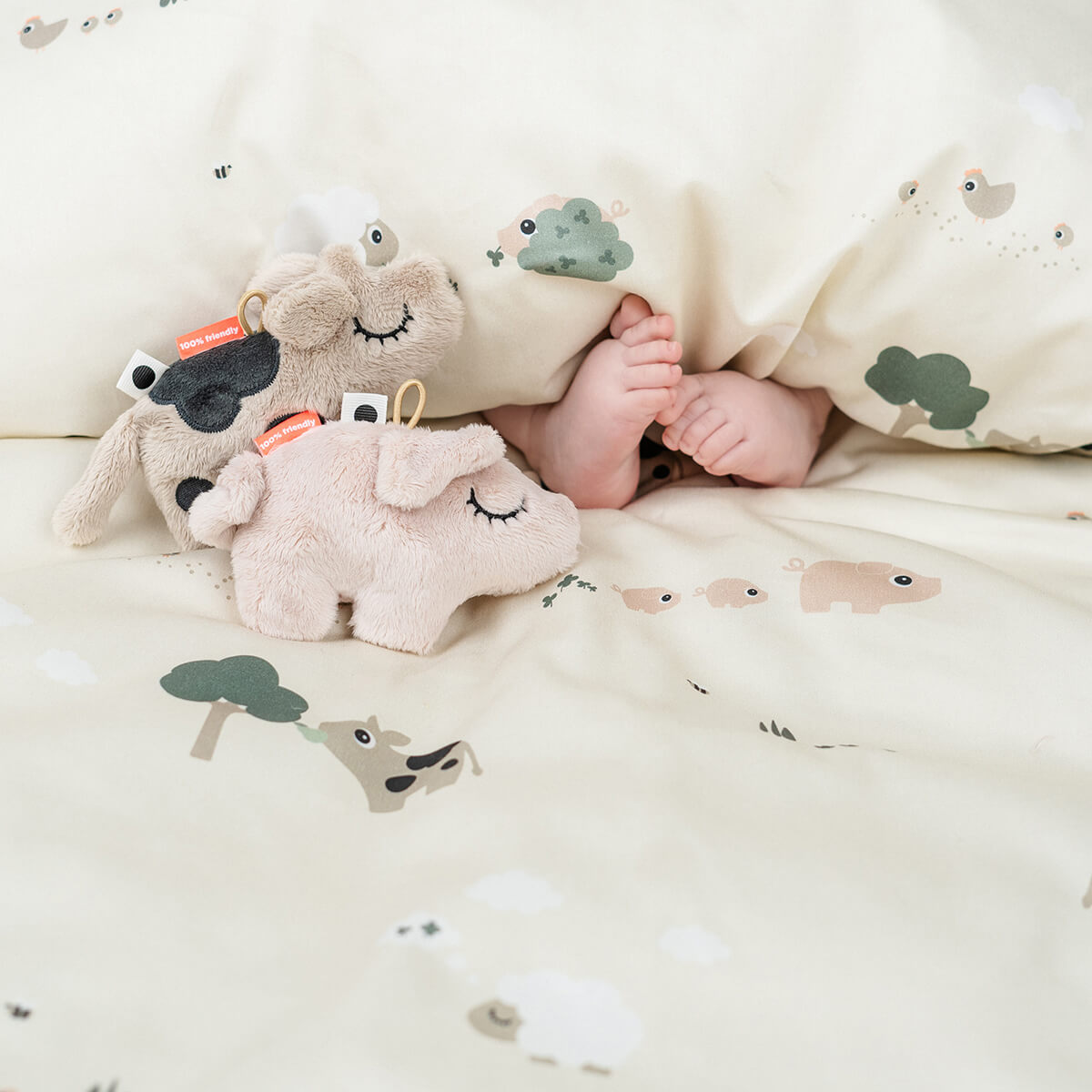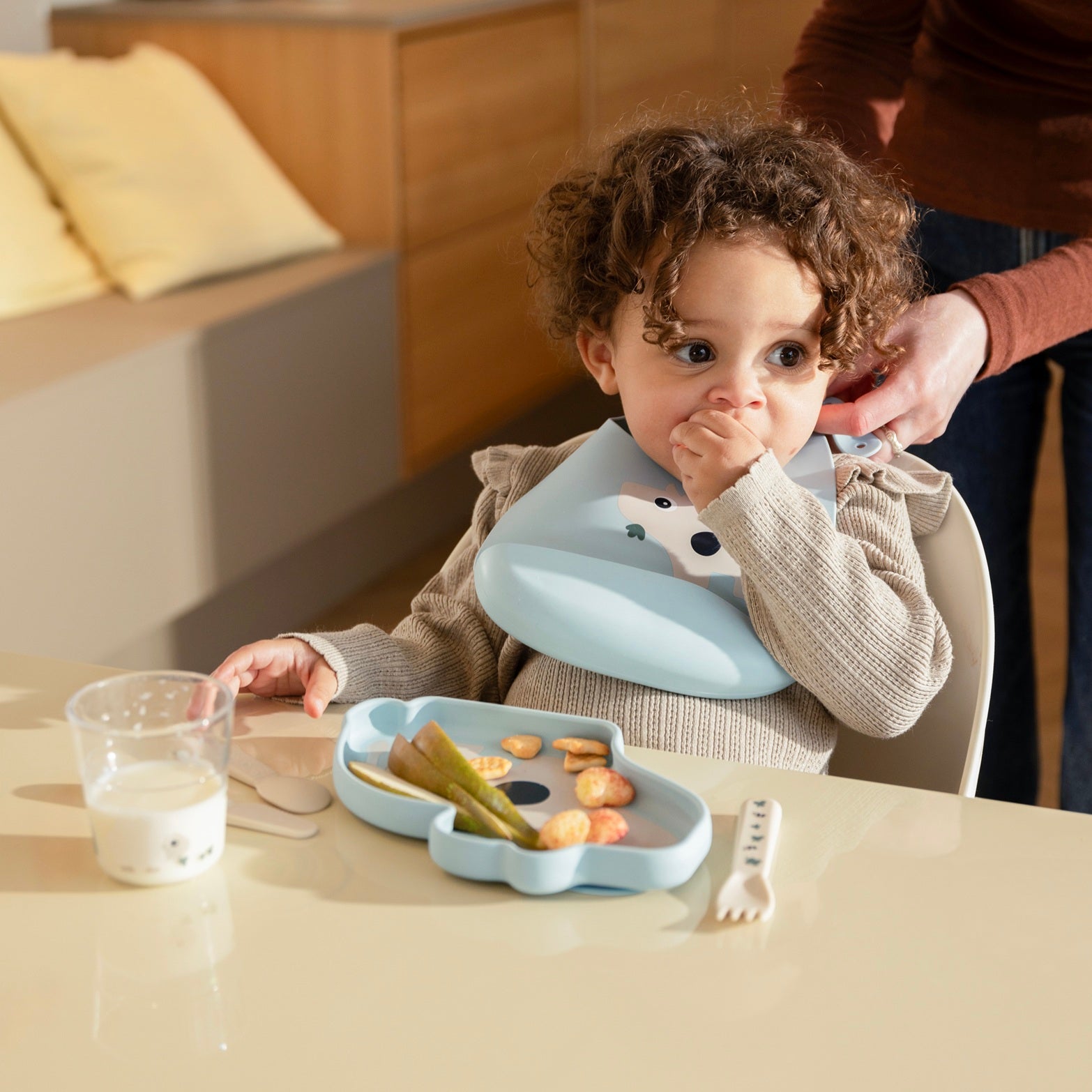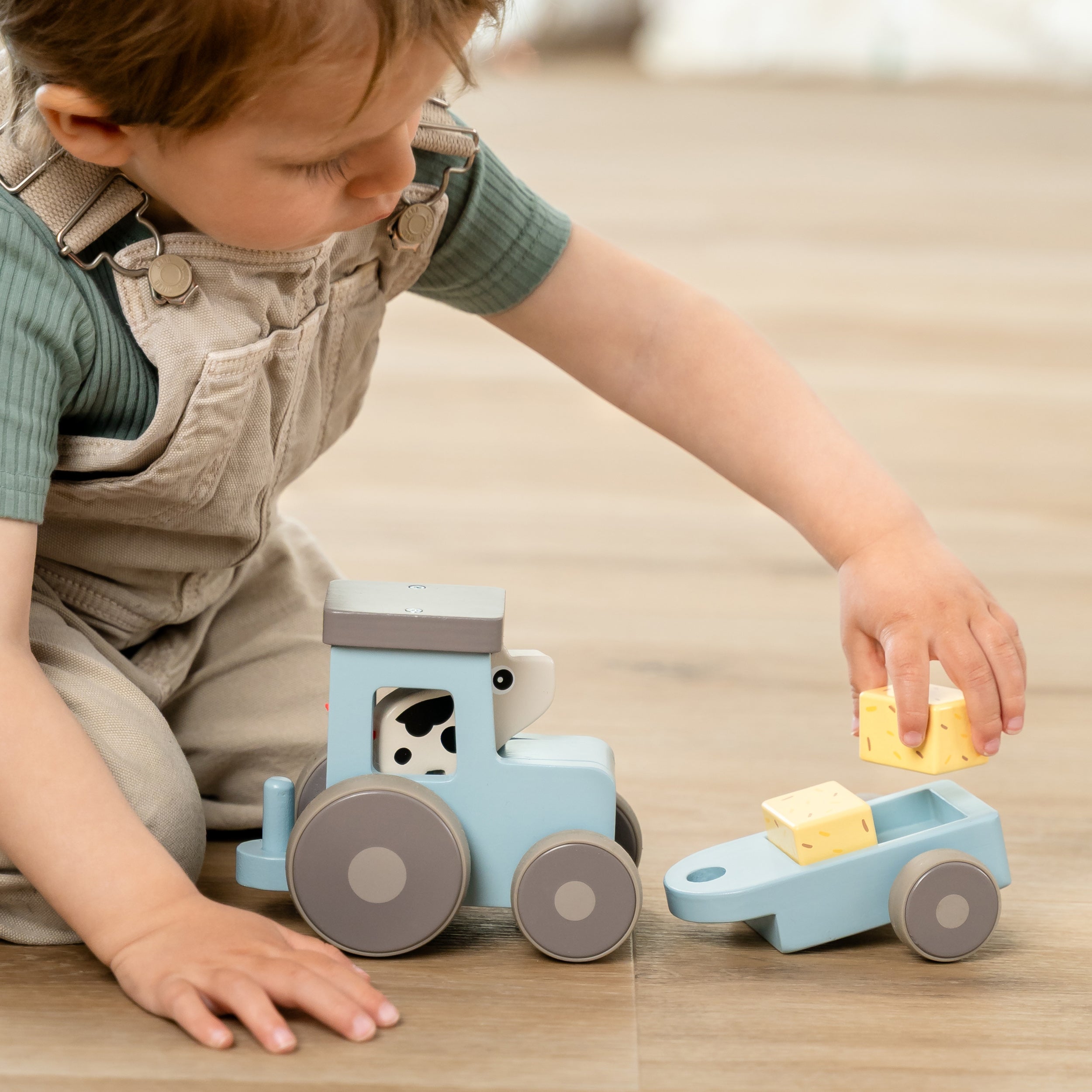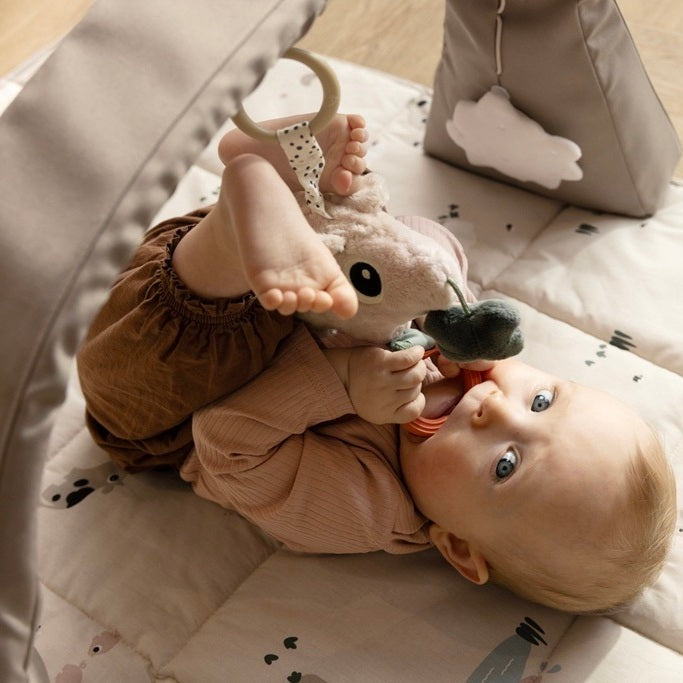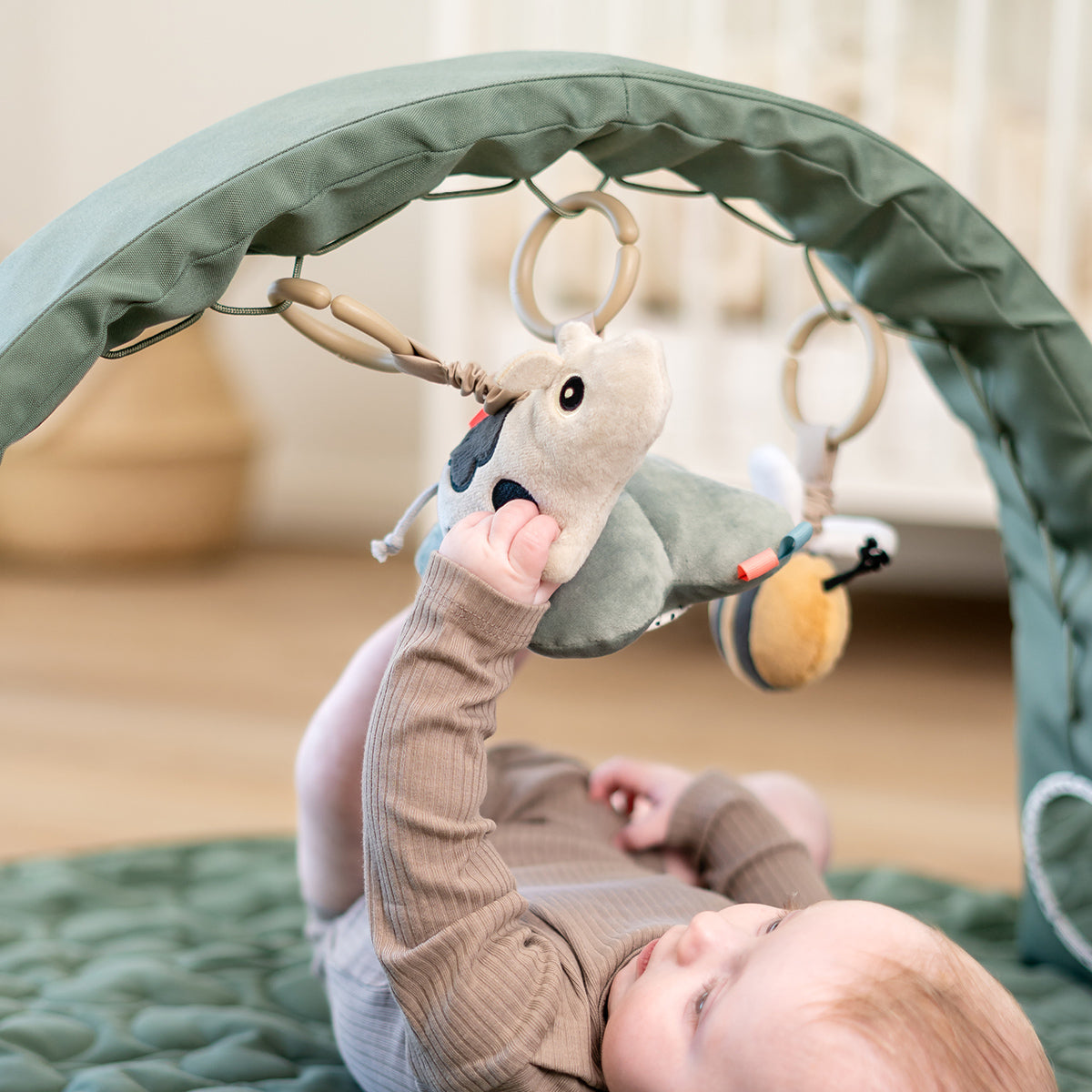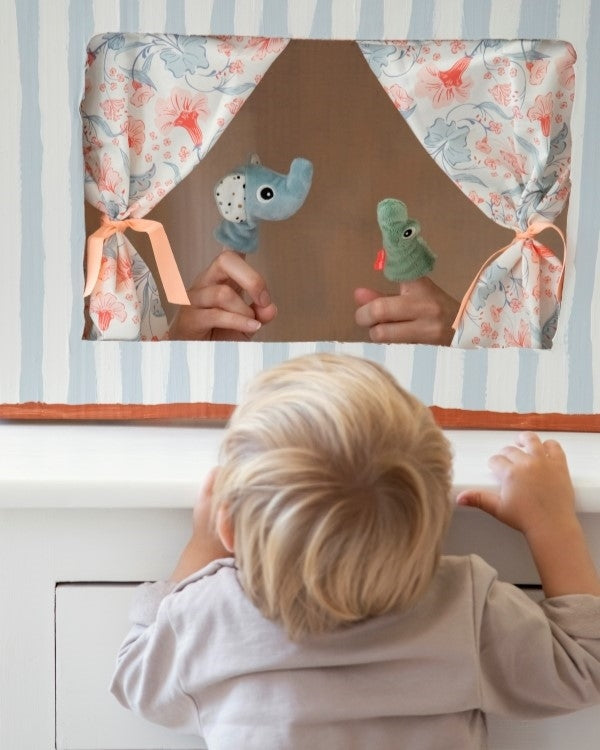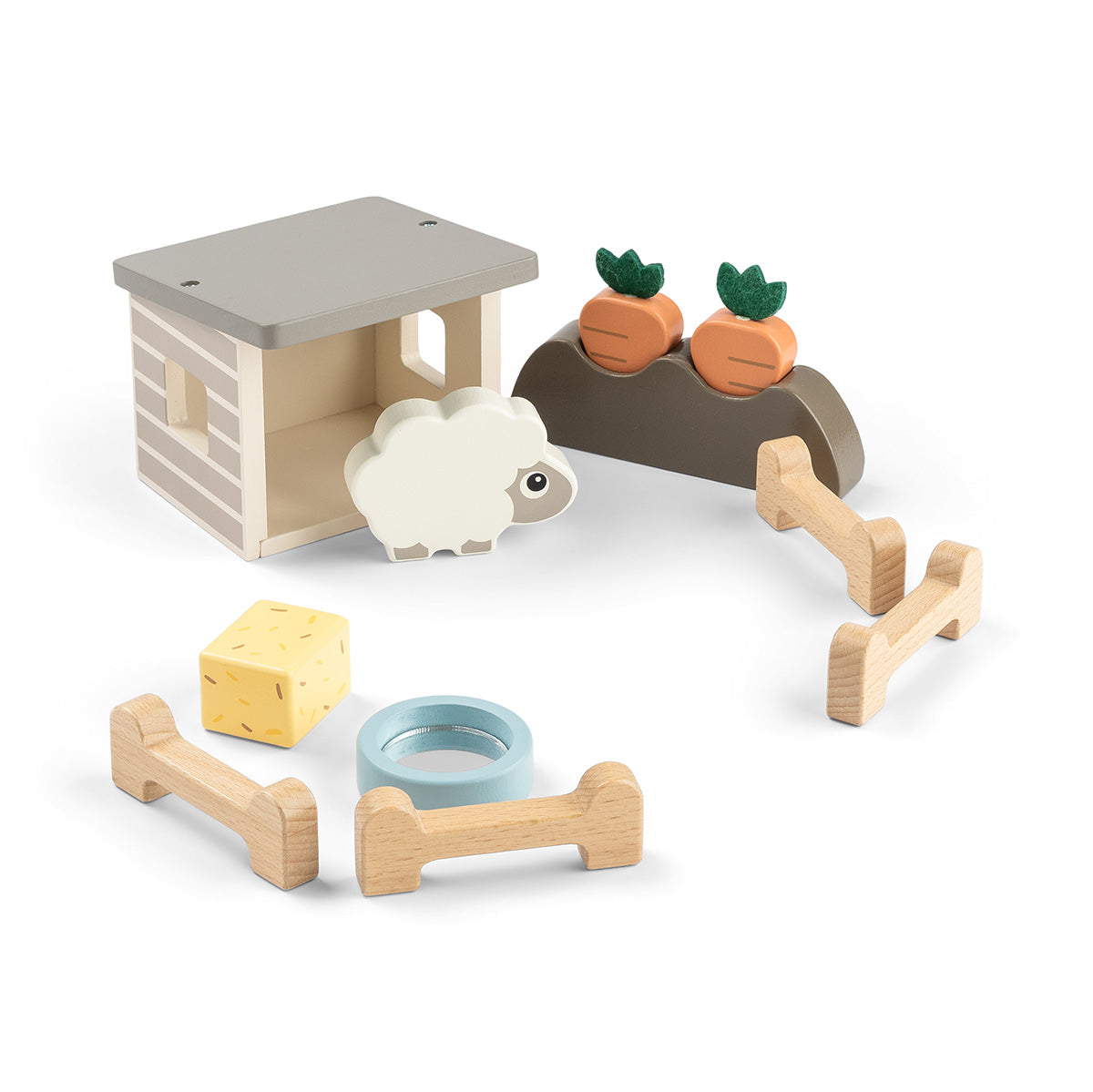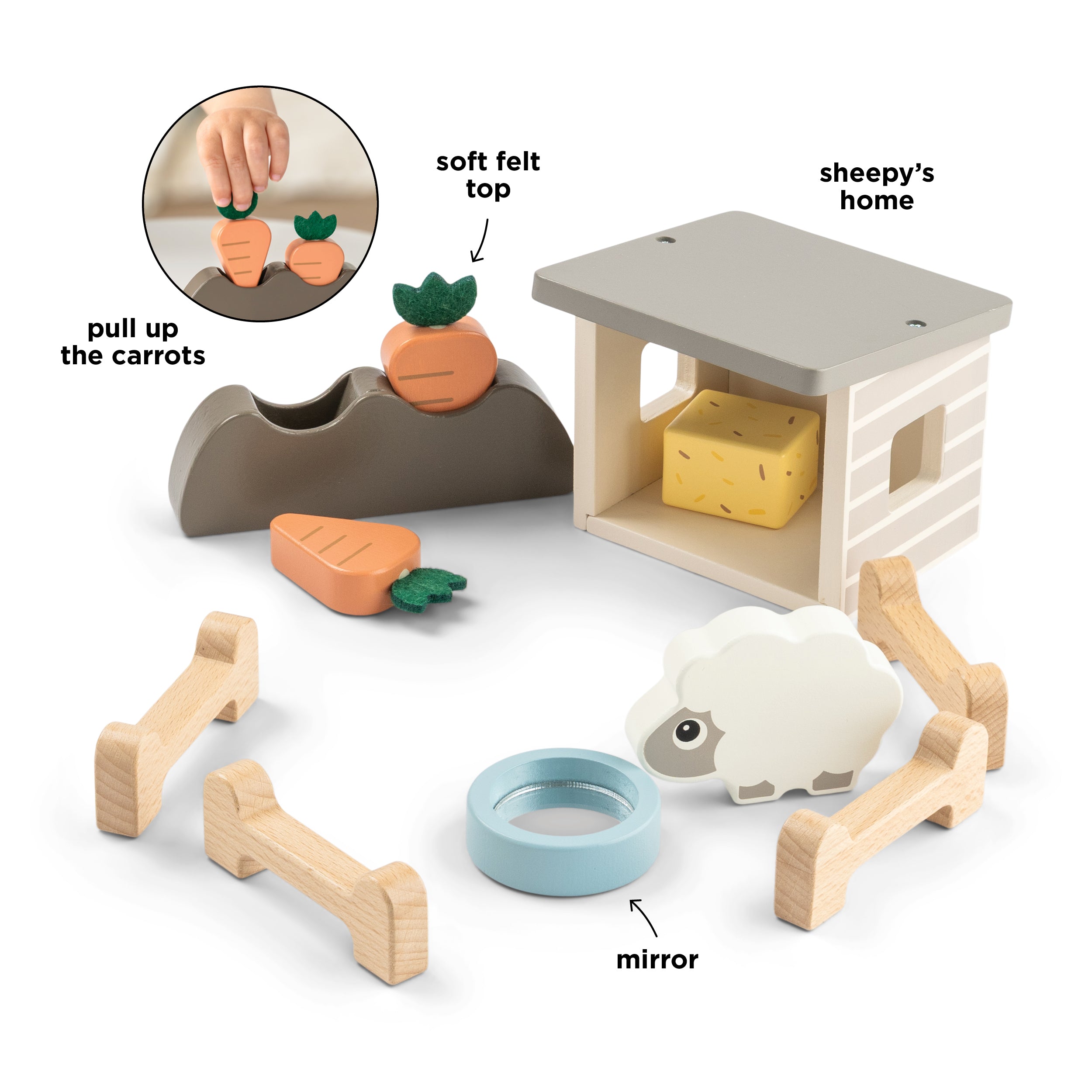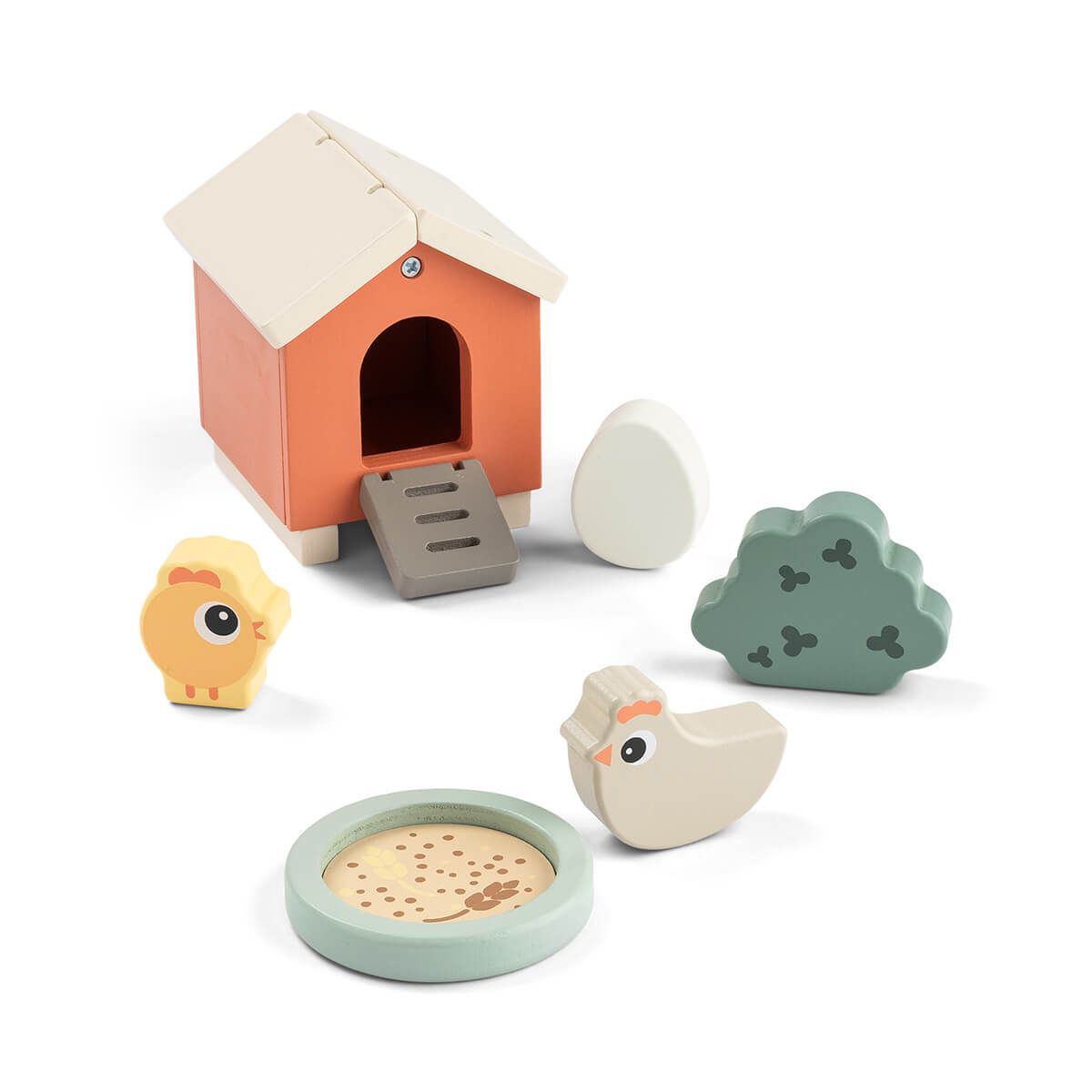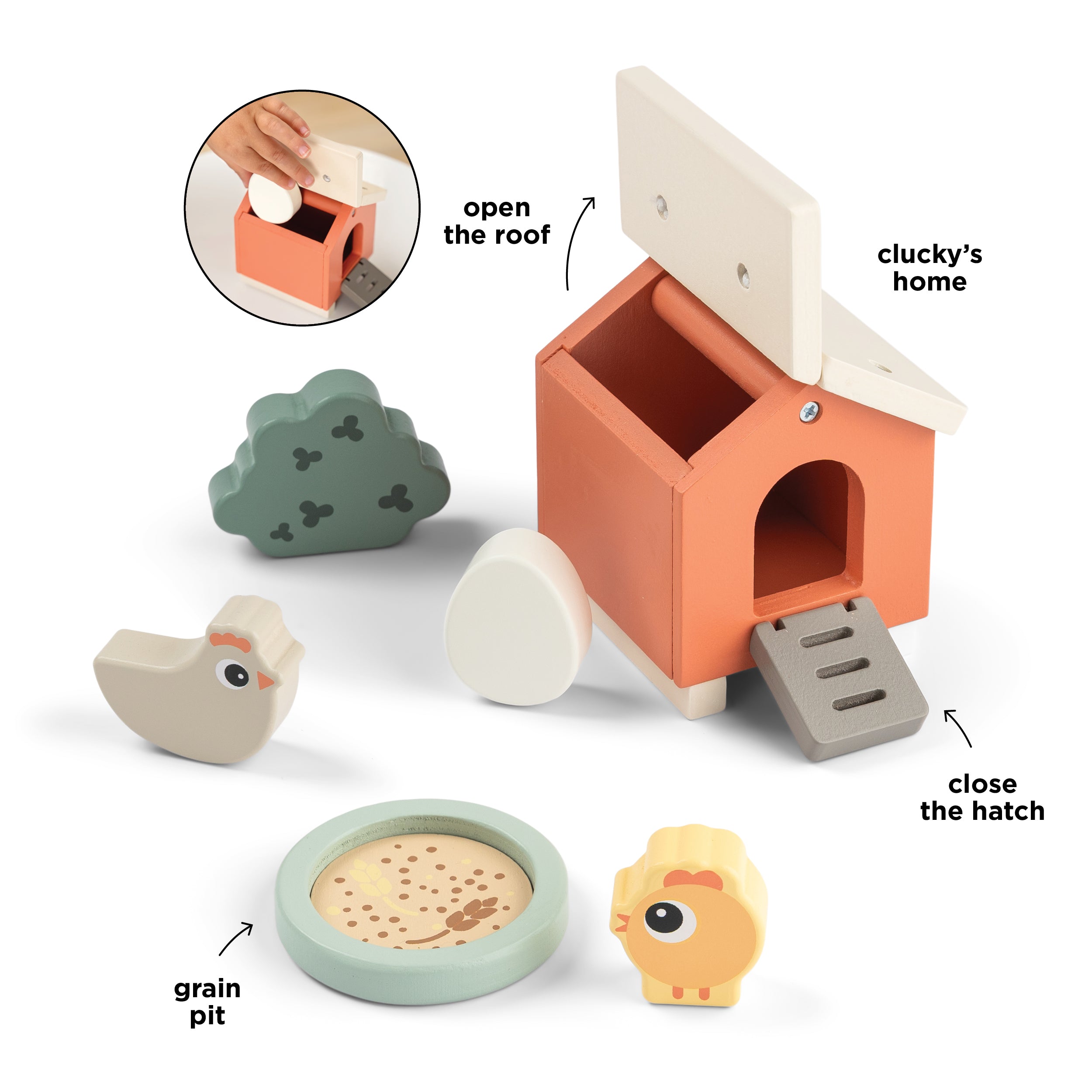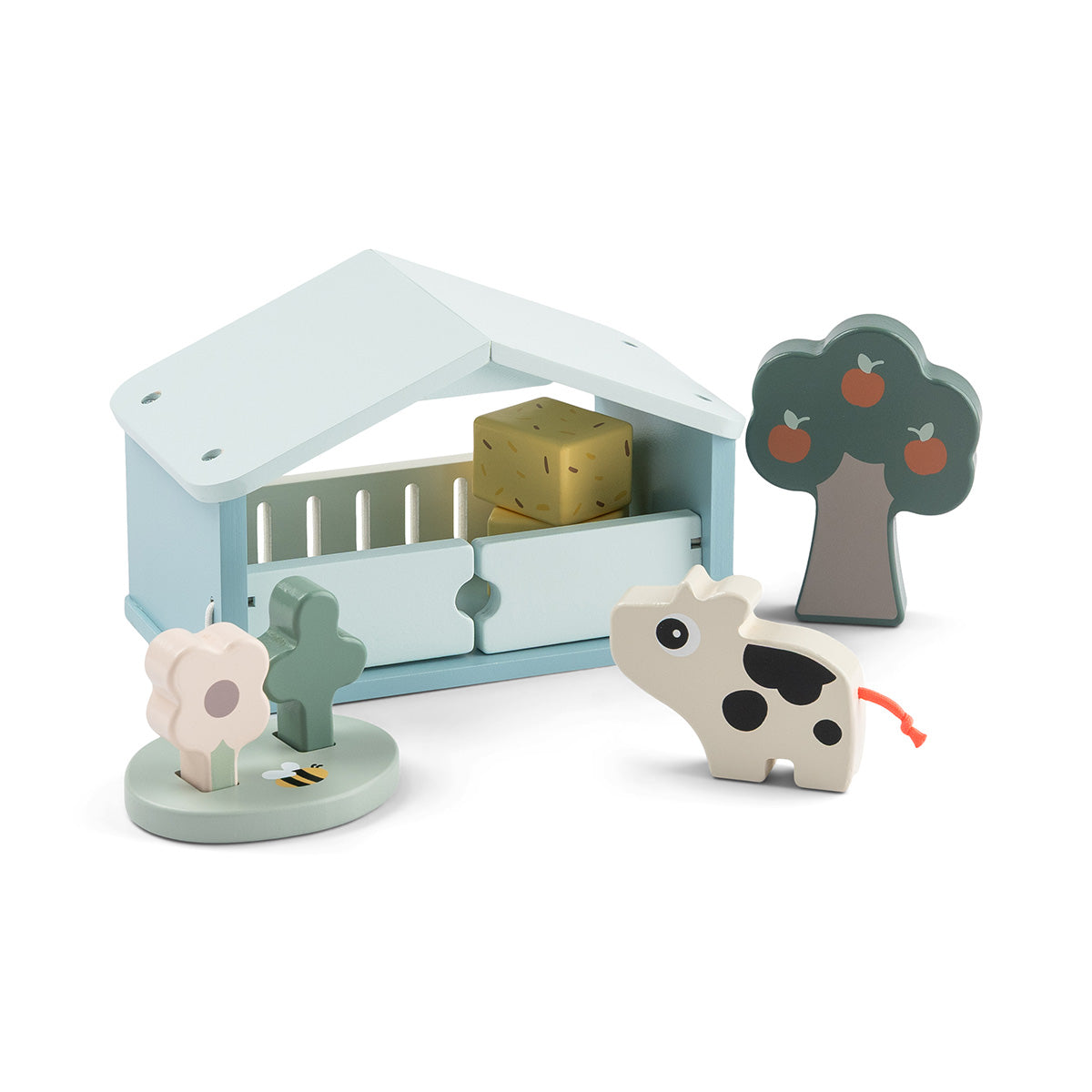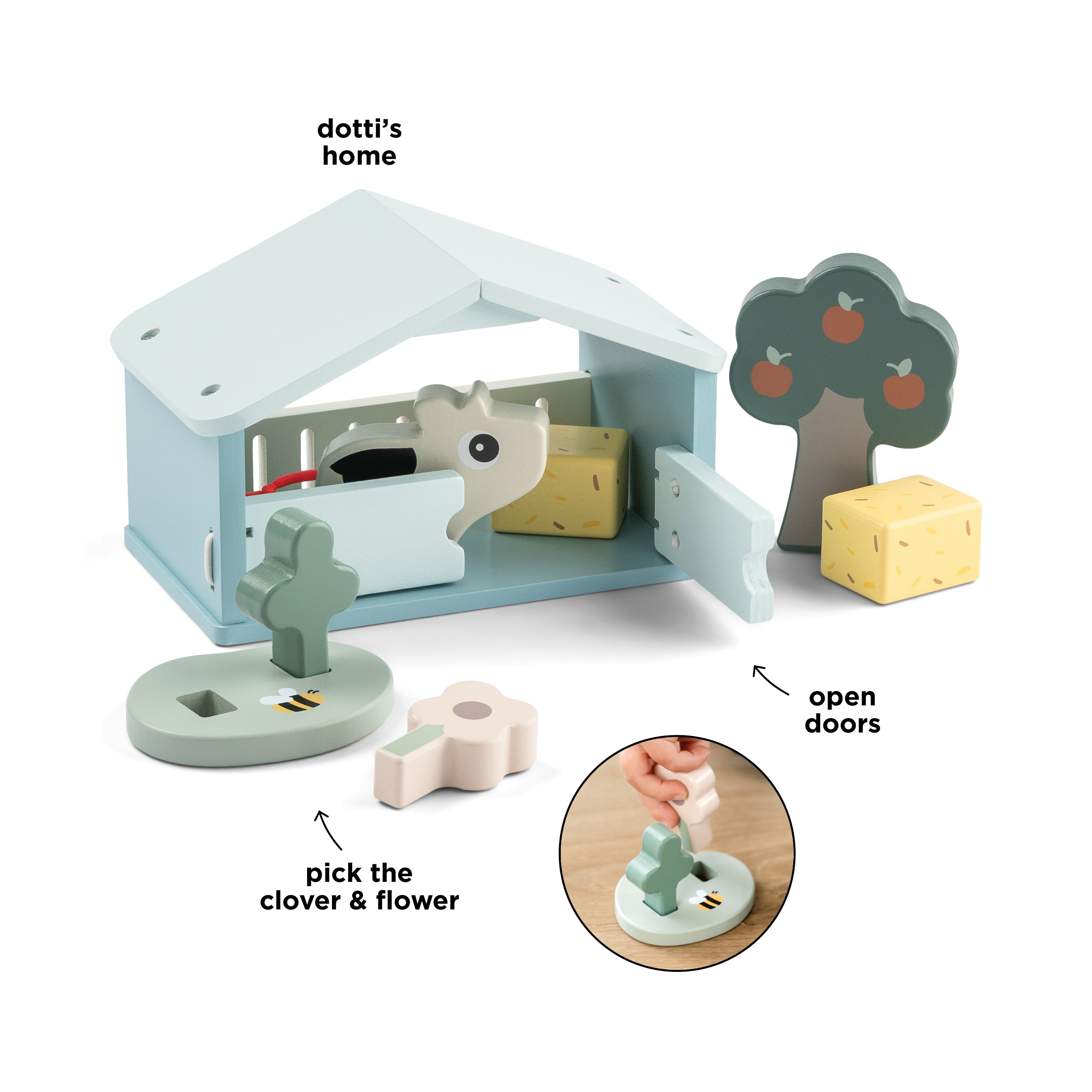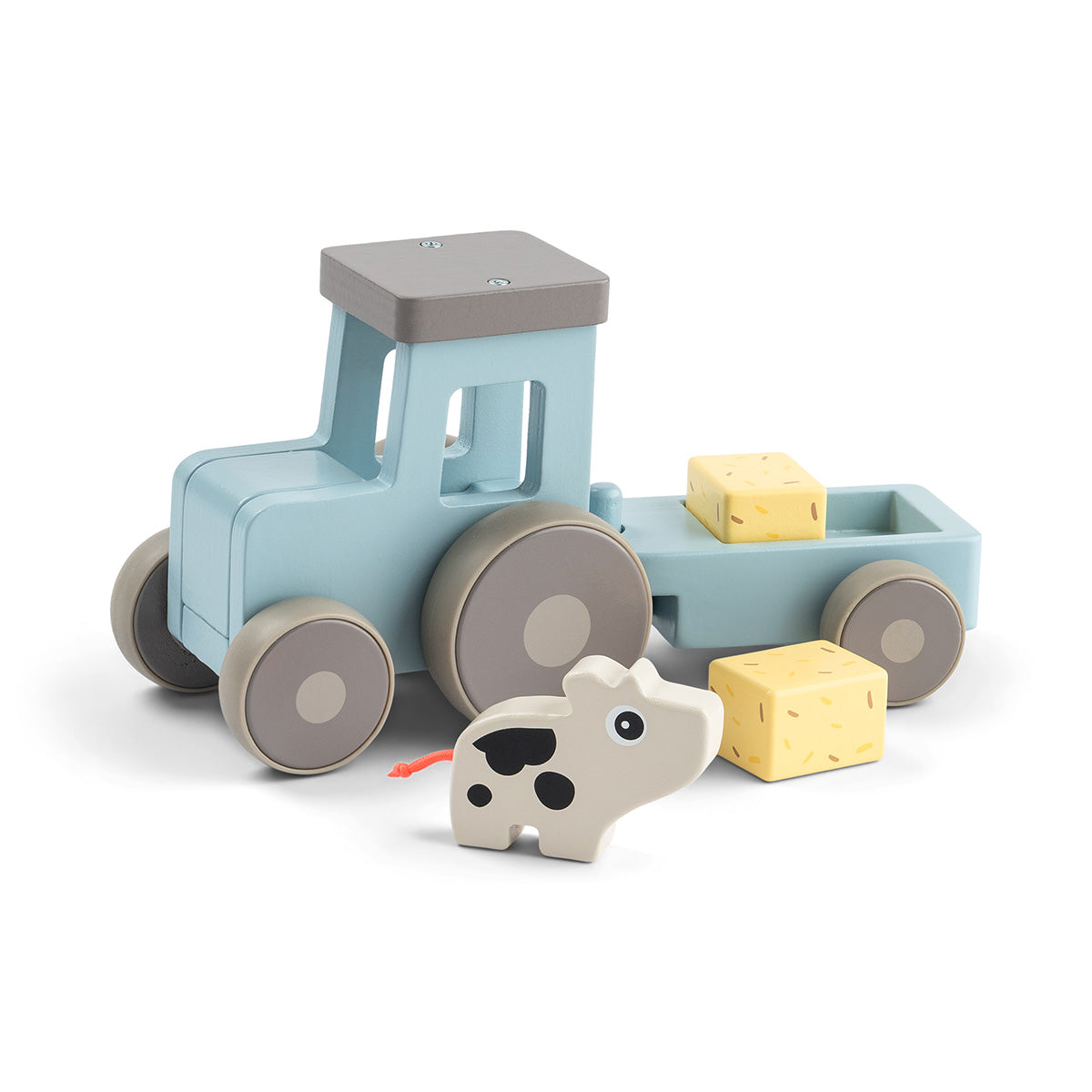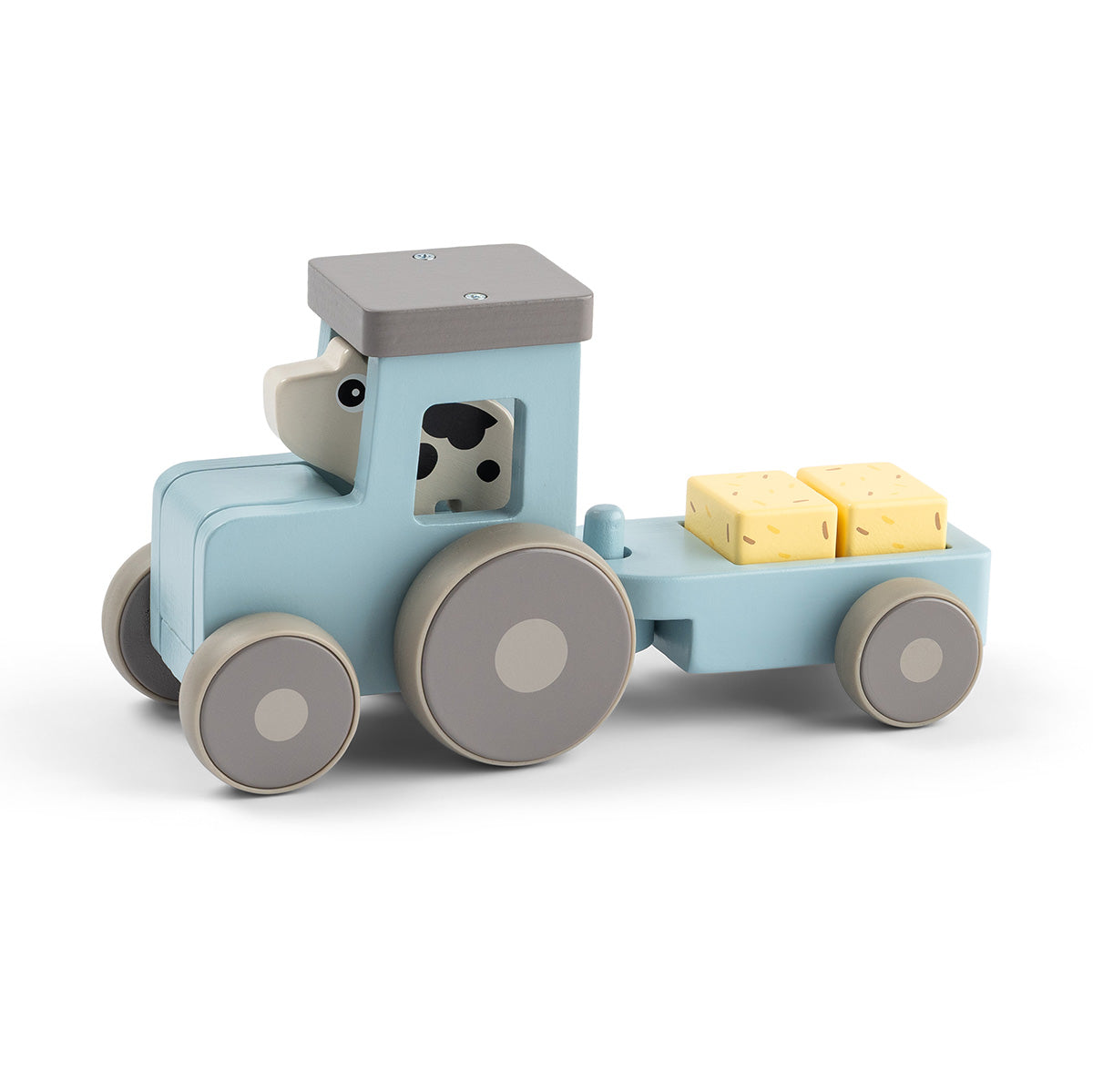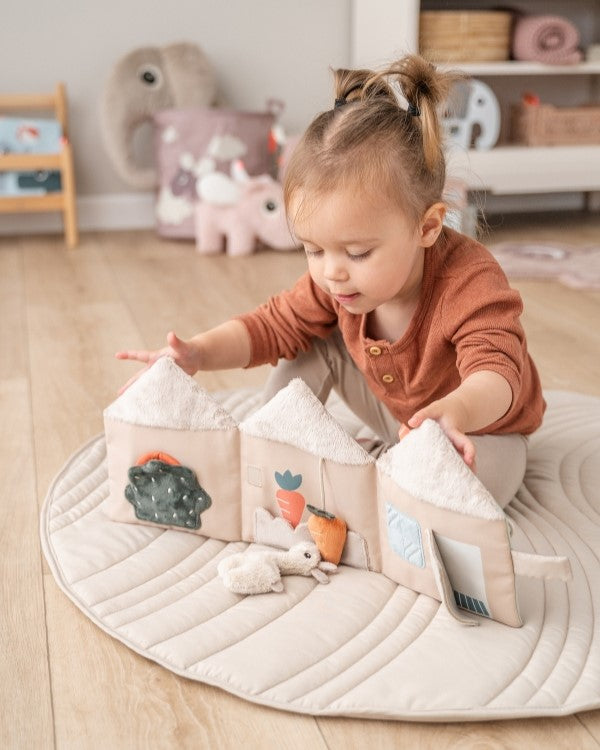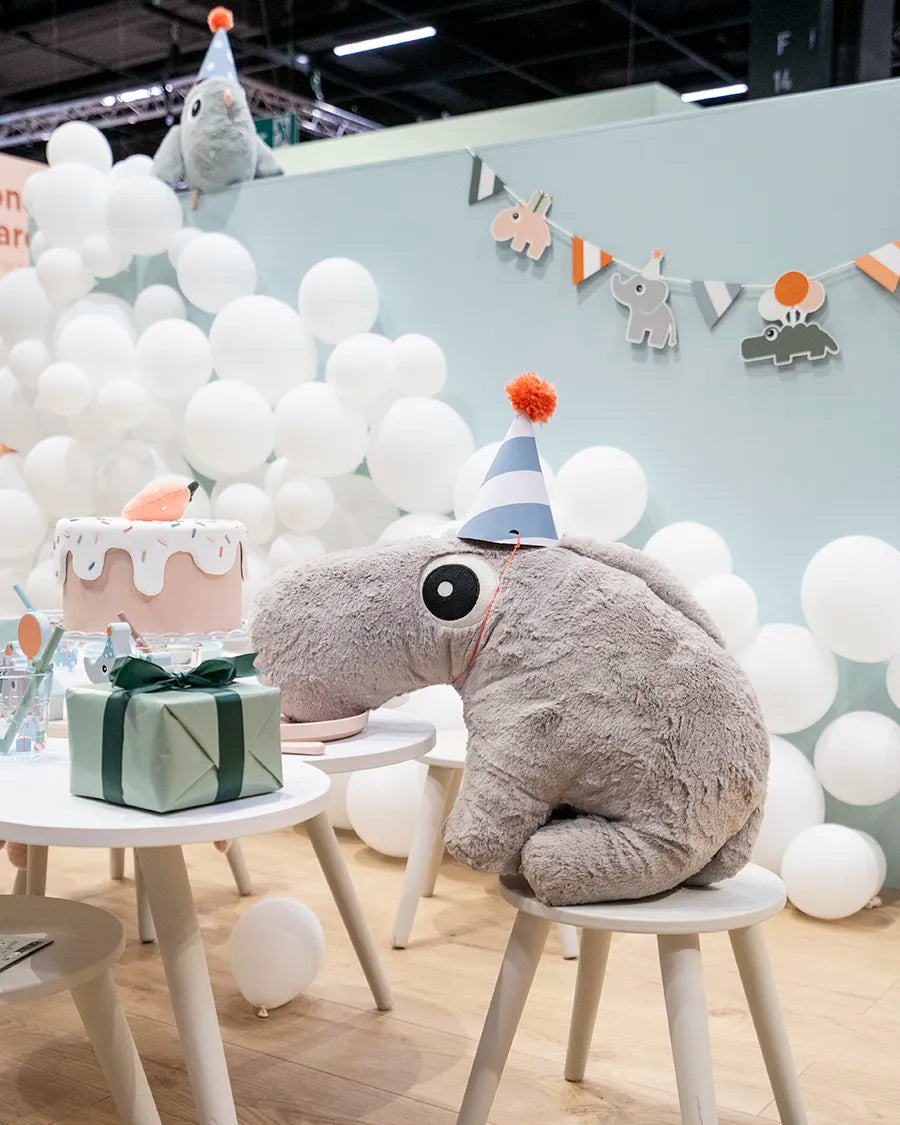1. follow their lead
When you let your little one take control of playtime, you’re stepping into their imaginative world. Whether they’re building a tower or playing make-believe, allow them to direct the activity. This builds their confidence, as they feel empowered to make decisions.
It also strengthens your bond because they see that you’re genuinely interested in what they love. By being a part of their world, you help nurture their creativity and problem-solving skills.
2. get on their level
Physically lowering yourself to your little one’s height - sitting on the floor, crouching at their table, or joining them on the playground - creates a sense of closeness. When you’re face-to-face, it becomes easier to connect, and your little one feels like you’re fully engaged.
This also makes it more natural to participate in the play, showing that you’re not just an observer but a true participant.
3. use open-ended toys
Toys like building blocks, stacking tunnels, finger puppets, and craft supplies are great for encouraging imaginative play because they can be used in many ways. Instead of focusing on creating something specific, enjoy the freedom of open-ended play with your little one.
Build together, make something silly, or let their ideas lead the way. The beauty of open-ended toys is that they allow for endless creativity, helping little ones think outside the box and find new ways to explore and solve problems.
4. embrace pretend play
Pretend play is a gateway to your little one’s imagination. Whether they’re superheroes, doctors, or shopkeepers, join in their make-believe world and let your own imagination follow theirs.
Pretending together allows little ones to explore different roles, emotions, and scenarios in a safe space. It also helps them develop language and social skills as they navigate various roles. For you, it’s a chance to understand how they see the world and interact with it.
Learn more about the different types of play here.
5. enjoy outdoor play
Outdoor play offers a change of scenery and a space for both of you to move and explore. Whether you’re playing catch, kicking a ball, or simply walking in nature, outdoor activities encourage physical movement and discovery.
Being outside also invites spontaneous moments of joy, like finding a cool rock, spotting birds, or feeling the breeze. Playing outdoors is a great way to break the routine and share in your little one’s sense of adventure.
6. create playtime traditions
Regular, predictable play routines can become a cherished part of family life. Whether it’s a weekly family game night, a craft session, or reading time before bed, these moments create a sense of stability and connection.
Little ones thrive on routines, and by setting aside dedicated playtime, you show that spending time together is important. These simple traditions become the moments your little one remembers and looks forward to.
Read more about play time essentials for each developmental stage here.
7. be present
One of the most powerful ways to engage in play is by giving your full attention. Little ones can sense when you’re distracted, so put away your phone or other distractions and focus entirely on the activity. Even a short period of focused, undivided attention can make a big impact.
When you’re present in the moment, it tells your little one that they are your priority and that their play is important to you. This creates a deeper sense of connection and makes playtime more meaningful.
Engaging in play with your little one is all about being present and having fun together. Whether it's pretending, creating, or playing outside, these simple moments can strengthen your bond and create lasting memories.
